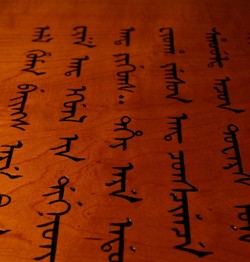The Fourth Revolution fosters a contradiction between cultural unification and diversity. And diversity wins, for sure!
We observe a quick assimilation into a unified world where English is the lingua franca, or so it looks on a first glimpse (actually there are some contradicting statistics there, and English tends to diminish on the net). At the same time the Fourth Revolution makes it easier than ever to read and understand other languages, and even save languages on the brink of being forgotten!

We’re all using automatic translation every day; our computers can spell check an incredible number of languages, soon for sure there will be automated translators that will allow us to communicate with others, in the palm of our hands. Most of these tools use the crowd-power: Google translate asks to suggest better translations; users are constantly improving the tools.
And languages on the brink of being forgotten suddenly have more chances to be saved (see the BBC article “Digital Tools to Save Languages“).
I love the quote from the article:
“Everything that people know about the planet, about plants, animals, about how to live sustainably, the polar ice caps, the different ecosystems that humans have survived in – all this knowledge is encoded in human cultures and languages, whereas only a tiny fraction of it is encoded in the scientific literature”
With the widespread recording tools of the Fourth Revolution, the syndrom of the elderly dying in Africa without passing on his knowledge is behind us. The library in the mind of this wise person is not lost any more. From the remotest corners of the world, knowledge is preserved, available, searchable, offering an immense opportunity for us.
I can’t even imagine what we will be able to do with it! And you?
